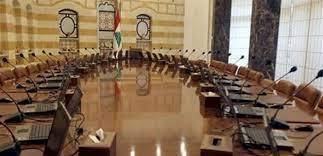"Call of the Homeland" writes: In a twisted reflection of Lebanon's citizens reaching advanced levels of misery and despair among the world's populations, Lebanon has competed with Afghanistan to be at the bottom of the "Happiest Country in the World" list, ranking just before it, according to the annual report issued by the United Nations that classifies countries based on "global happiness" criteria. This classification relies on "social solidarity, generosity, and government honesty as essential factors for ensuring the prosperity of their populations." Based on these measures, Lebanon found itself competing with the Afghan Taliban government for the title of "most miserable government for its people," surpassing Zimbabwe by a slight margin.
From one abyss to another, Lebanese rankings continue their downward spiral—socially, economically, financially, and institutionally—under the grip of a ruling authority that has plundered the country's resources and humiliated its people at the doors of hospitals, supermarkets, and banks, leaving them to struggle alone against the shifting sands of collapse without medicine, food, or money. Meanwhile, the state and its institutions have become hostages to a game of "tug-of-war" by authorities, which seem intent on suffocating the people and degrading their dignity for populist and electoral calculations that claim reform and change, as is glaringly evident in the ongoing conflict between the judiciary and the banks that has escalated in recent hours, forcing its way onto the Cabinet's agenda. Prime Minister Najib Mikati has attempted to rein in the "populist and police methods" employed by Judge Ghada Aoun, which threaten to bring down the entire monetary structure.
Mikati has warned that "the course of events with some judges is pushing toward creating tensions that could have dire consequences, and there are attempts to exploit this tension for electoral campaigns." Therefore, the Cabinet decided to "appeal" during its session today to the public prosecutor, Judge Ghassan Ouidat, to hold the judiciary accountable for initiating measures to "put an end to judicial populism," as sources following governmental atmospheres reported. They clarified that "the government will affirm its respect for the principle of separation of powers and the judiciary's right to follow up on financial and banking investigations, but at the same time, it will request those responsible for the regular functioning of the judiciary to take charge of this file and keep it away from any slope threatening public stability and undermining Lebanon's higher interest."
Yesterday, the Association of Banks hinted at the possibility of initiating escalating steps in the face of "the Aoun judiciary's assault that targets the banking sector for clear electoral purposes," as banking sources described it, starting with announcing a "warning strike" that will stop work in the banking sector across all of Lebanon on the coming Monday and Tuesday as a "first step to raise awareness of the seriousness of the current situation," considering it an alert "against abuse so that those concerned stop evading their responsibilities and placing them on the banks." They urged taking the needed steps to protect the public interest.
In a similar context, Maronite Patriarch Bishara Al-Rai raised significant questions yesterday about the political and electoral objectives behind the judicial assault on banks. During a mass he led on the occasion of Saint Joseph's Day, where Papal Ambassador Joseph Spiteri participated, he asked, "While we are keen on the judiciary and its independence, we question for whose benefit these measures, which turn the judiciary into a populist tool? (...) It is regrettable that the majority of unique judicial measures do not serve the goal of securing depositors' funds but are framed within the context of settling political scores in this electoral phase, especially since some have declared their intent to destroy the Lebanese banking system." He also called on the government to fulfill its duties to "organize its revenues, settle its internal and external debts, and restore the economic, commercial, financial, and banking life to its natural course."
Meanwhile, the conclusion of the three-way presidential retreat at the Baabda Palace yesterday, which discussed the Lebanese response to the American proposal for maritime border delineation with Israel, confirmed the conclusion that "Call of the Homeland" uniquely revealed at the beginning of the week regarding the rejection of this proposal and the call to return to indirect negotiations in Naqoura under the auspices of the UN and American mediation.
In this regard, the meeting at Baabda among the three presidents, Michel Aoun, Nabih Berri, and Najib Mikati, ended with an agreement to reject the "boundary line" for maritime delineation proposed by American mediator Ambassador Amos Hochstein, as it "does not meet the minimum that Lebanon could accept," concerning Hochstein's suggestion to adopt coordinates for line 23 while granting Lebanon the full Qana field. They decided to request the American side to "continue its negotiation efforts and to return to Naqoura negotiations so that all proposals are put on the table to arrive at a positive outcome, including Hochstein's proposal, to negotiate a final solution that guarantees all Lebanese rights." A written formulation of this response is to be prepared soon for official delivery to the American side.




